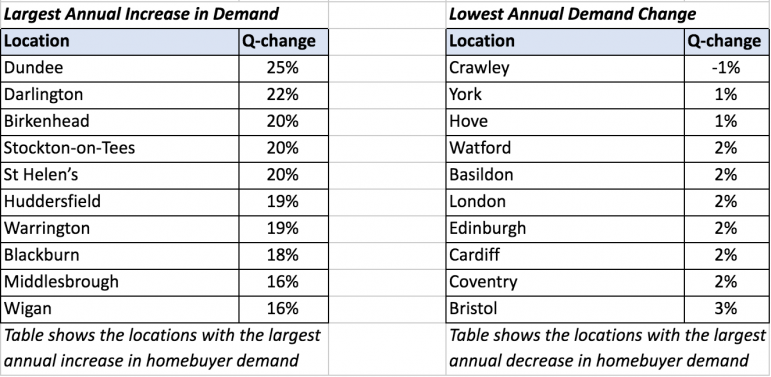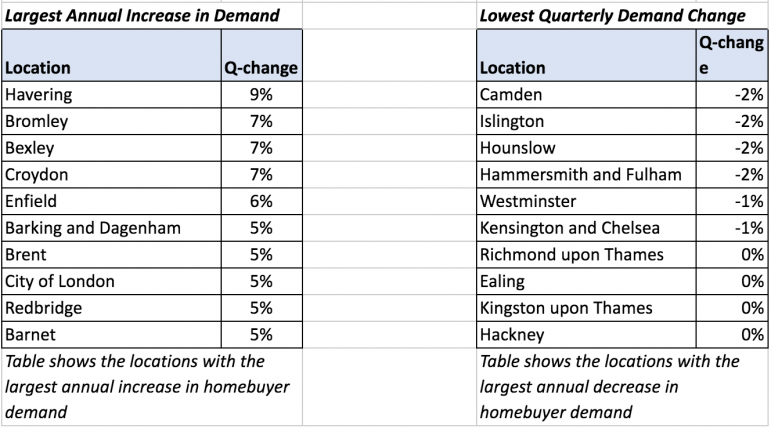There has been a significant increase in the number of buyers looking for homes since the chancellor announced a stamp duty holiday, according to new figures.
GetAgent, which monitors homebuyer demand across the UK on a quarterly basis based on market data from the major property portals, reports that there was an 8.5% rise in buyer demand in the third quarter of this year compared with the previous three-month period.
According to the data, existing buyer demand levels are at their highest since the start of last year, with all but one of the 100 towns and cities analysed as part of the research witnessing annual growth in Q3 2020.
Colby Short, founder of CEO of GetAgent, said: “The meteoric uplift in UK homebuyer demand in the third quarter of this year demonstrates a market that has well and truly bounced back from pandemic paralysis.”
More affordable areas were the strongest performing in terms of buyer demand in Q3, with plenty of room for further growth in some parts of the country.
Colby continued: “It’s fair to say that the current stamp duty holiday in its various forms across England, Wales and Scotland has played a huge part in this revival and should continue to do so over the final quarter of 2020 at the very least.
“This is great news for home sellers who may have seen the value of their property plateau or even fall during the prolonged period of Brexit uncertainty that plagued the market over the last few years. With buyer demand now seeing a healthy increase, sold prices are likely to follow suit.”
But demand in London has been far more subdued. The capital is among the cities to have seen the most marginal increases in buyer demand, with a 3.6% rise quarterly and a 2.3% uplift year-on-year. However, the outer boroughs continue to perform well.
Short added: “With a higher property price tag, the rebound has been less pronounced in London, although the capital’s outer boroughs continue to perform well.
“As many of us continue to work from home, it’s likely that demand for central London homes will remain muted over the coming months and potentially into next year.”










Comments are closed.